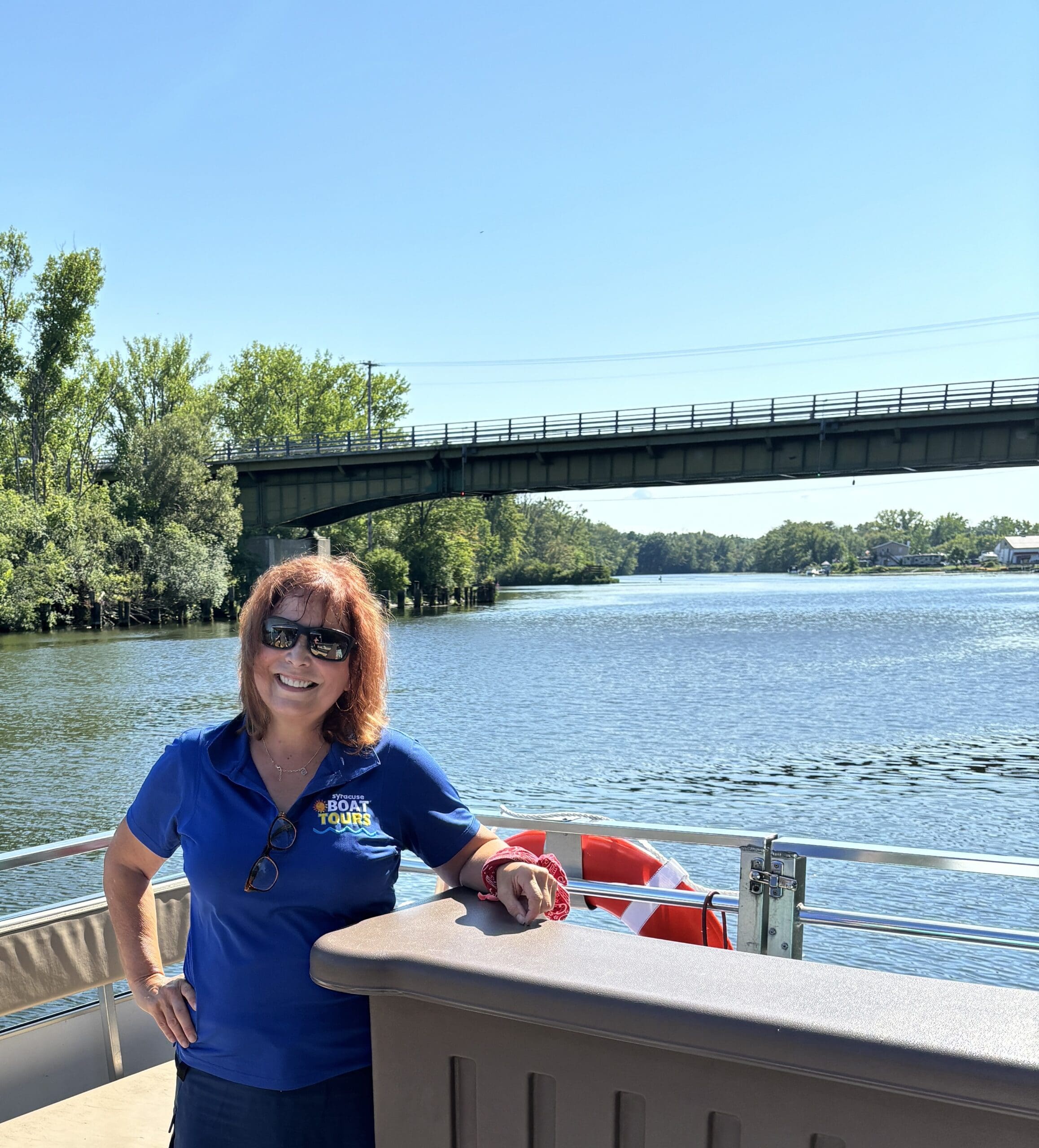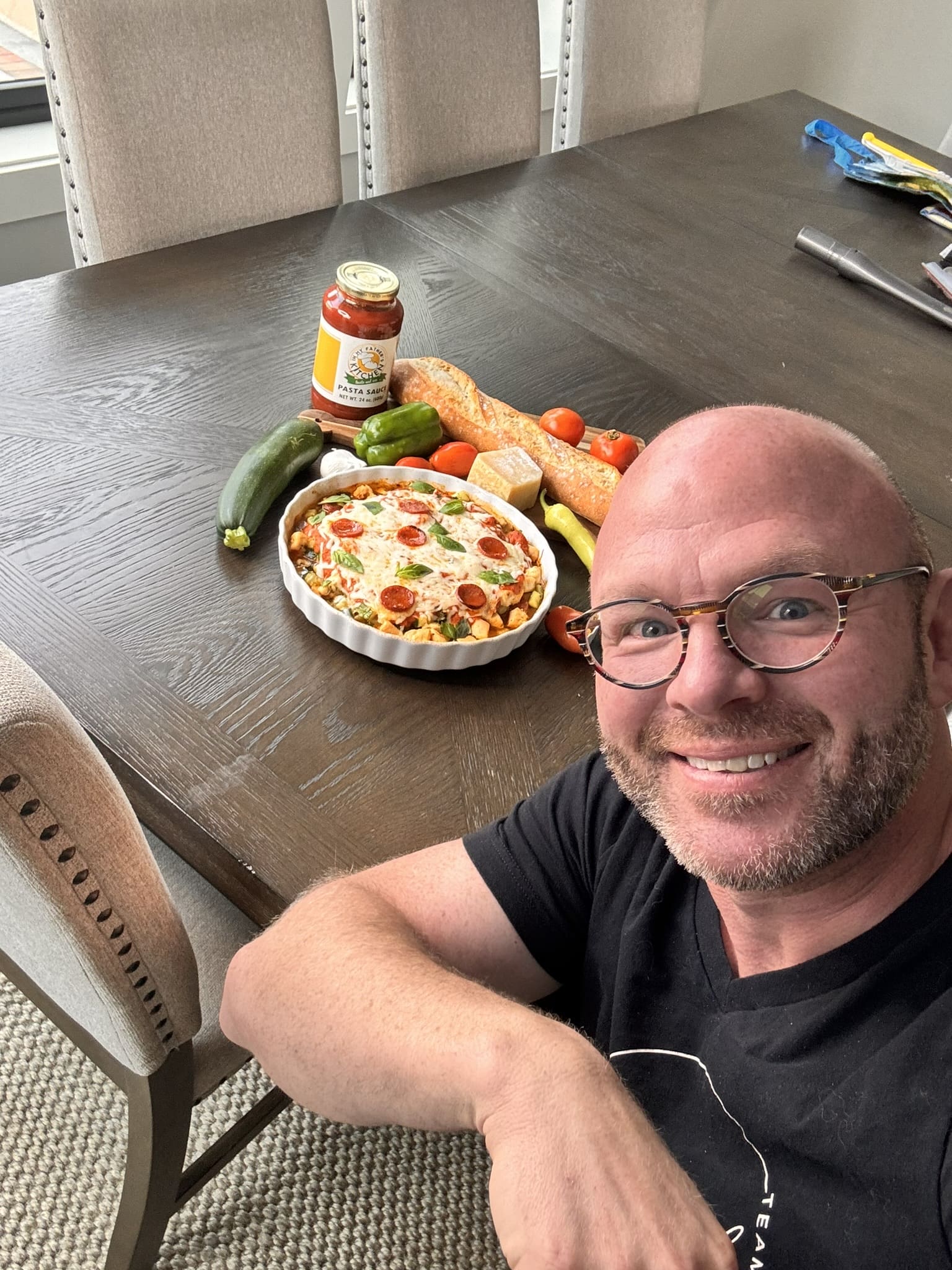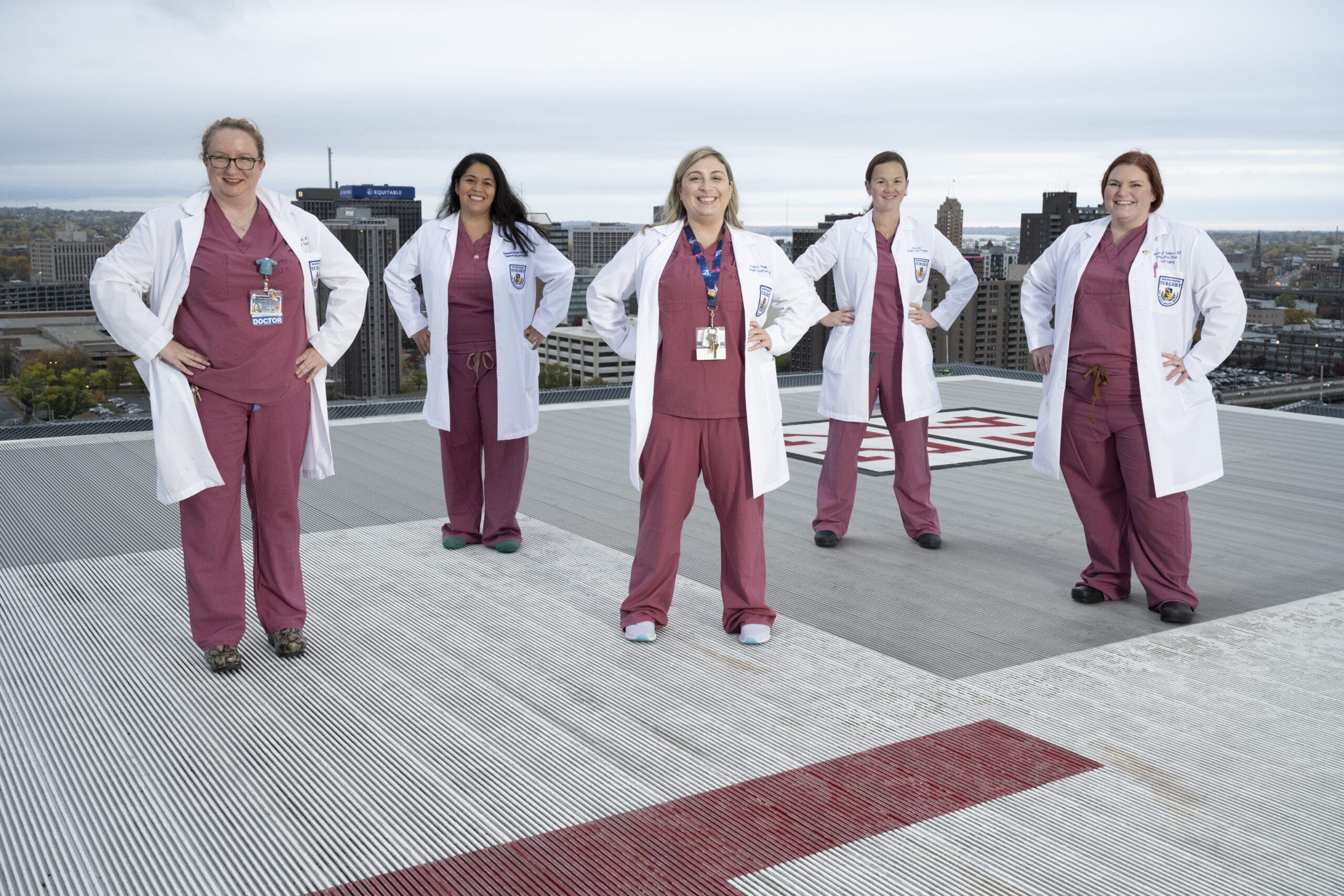Finding Her Road to Ministry
By Jasmine Gomez | Photography by Mary Grace Johnson
On Syracuse’s South Side stands an outreach center where those in need can find a hot meal, toiletries or a pair of boots during the winter. It’s more than simply a soup kitchen. The St. Marianne Cope Center for Outreach opened in May 2017 on South Salina Street after being housed at St. James Church for several years. It not only houses a commercial kitchen and dining space, but also a washer, dryer and shower for those who need it.
For those looking for somebody to just talk to, they’ll also find a friendly face: Sheila Austin, the director of the Road to Emmaus Ministry of Syracuse. Like everyone who helps with outreach there, Sheila’s position is volunteer-based, but that doesn’t limit the number of hours she spends at the center helping some of the South Side’s most vulnerable residents, even if it’s the last thing she ever saw herself doing.
“I was fearful of the South Side, of people who were different, and I tended to avoid all those situations,” Sheila said, “but this ministry forced me into that environment and, as a result of it, what I was most fearful of, it changed.”
Sheila’s involvement with the Road to Emmaus Ministry started about nine years ago, when she was a parishioner at St. James. She was starting to reconnect with her faith and Father John Manno was newly assigned to the church. He had a vision of engaging the parish in active outreach, Sheila said, which meant meeting those in need where they were.
Before Father Manno’s arrival, the church’s outreach involved making sandwiches for a men’s shelter, a place the volunteers never actually visited. Sheila didn’t even know where the shelter was located, she said. Father Manno suggested she start there.
“He presented this challenge to us as people of faith and I remember saying, ‘No,’” Sheila said. “I was in a cold sweat. I was scared to death, but I also knew that I was being stirred inside, too.”
After initially resisting, Sheila decided to take on the challenge. She researched the location of the men’s shelter, only to find it was in the area of town she typically avoided — the South Side.
For about a month, she would drive her car closer and closer to the shelter and never actually make it there, until one day, with pans of baked ziti and other volunteers, she finally did.
For Sheila, that first experience was illuminating, she said. She remembered a man thanking her for the food, and asking her if the place was too distasteful for her to want to come back. She immediately responded she would return.
“There was something very special about the spirit that was in there that helped me and our volunteers to recognize that this was a ministry,” Sheila said. “Not just making some food and bringing it to somebody, [but] that it had more of a spiritual component to it, and that’s where we started to grow from.”
Now, years later, those fears Sheila first had are gone. She spends many hours at the center, sometimes alone, welcoming homeless men and women who need to shower, eat or wash clothes. Her faith and the selflessness of the volunteers who serve with her keep her going, she said.
“I don’t have the fear that I had growing up as a younger person,” she said. “I think it’s because I’ve allowed myself to be familiar with people in general, and not just people that I’m comfortable [with].”
Sheila’s formed relationships with the many faces that frequent the center. The center is open for service at least four times a week, whether it’s for breakfast on Tuesday and Thursday mornings, or laundry and showers on Wednesdays.
People who come in are like children to her, Sheila said. Before dedicating most of her time to the ministry, Sheila was a nurse at St. Joseph’s Hospital, working in the intensive care unit and operating room. There, she met a her future husband, a doctor. The two never had children, but now she said she has more than 100 kids.
“I feel that maternal and nurturing sort of thing and, honestly, I think they look at me that way, as well,” she said. “I feel comforted by them. My heart is just full of love and compassion for all of them as if they were my own.”
In the process of helping those who are most vulnerable, Sheila aims to be an example for those who have the same fears she once had. To an extent, she feels the responsibility to help people open themselves up to “people who have addictions, people who have psychiatric issues, the homeless people [and] people who just look different,” she said.
“If I could do it, anybody can,” Sheila said. “It’s just a matter of leading them by the hand and giving them opportunities to come here, witness, volunteer and help break the ice for that experience for them, because it can be life-changing.” SWM
For more information on Road to Emmaus Ministry of Syracuse, visit emmausministry.org.





